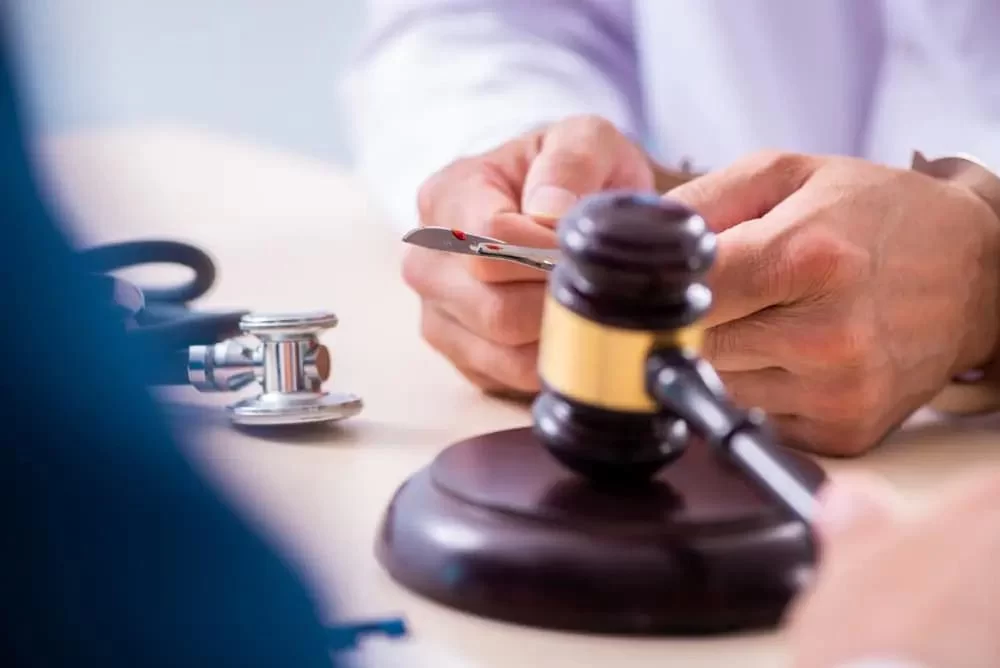
Understanding the Need for a Medical Malpractice Lawyer
When I first realized something had gone terribly wrong with my surgery, I felt lost. The doctor seemed dismissive, and I didn’t know if I had any legal options. After countless nights of researching and talking to others with similar experiences, I realized I needed a medical malpractice lawyer. If you're in a similar situation—confused, in pain, and unsure of your next steps—this guide is for you.
1. Recognizing Medical Malpractice
Not every unfavorable outcome in healthcare is considered malpractice. The law defines medical malpractice as a situation where a healthcare provider deviates from the standard of care in a way that causes injury or harm. For example, in my case, a surgical tool was left inside my body, leading to a second surgery and months of pain.
If you're dealing with misdiagnosis, surgical errors, medication mistakes, or childbirth injuries, you may have grounds for a case. But before you can move forward, you’ll need a lawyer who understands the ins and outs of medical negligence law in the United States.
2. How I Started Looking for a Medical Malpractice Lawyer
2.1 Local Bar Association and Online Legal Directories
My journey started by checking with my state’s bar association. Many of them offer referral services that connect you with licensed attorneys who specialize in medical malpractice. I also explored directories like Avvo and Martindale-Hubbell, which list ratings and reviews from former clients.
2.2 Recommendations from People I Trust
Personal recommendations carried a lot of weight for me. A coworker’s spouse had gone through a similar ordeal and recommended their attorney, who had not only won their case but also provided emotional support along the way. That kind of feedback mattered to me—it made the process feel less daunting.
2.3 Checking Credentials and Track Record
Before choosing anyone, I made sure to verify their qualifications. I looked into their education, bar status, and more importantly, their case history. How many malpractice cases had they handled? What were the outcomes? Did they go to trial or settle most of the time? This gave me a clear picture of their experience level.
3. What to Expect During the Initial Consultation
Most medical malpractice attorneys in the U.S. offer a free initial consultation. During mine, I brought all my medical records, bills, and a timeline of what happened. The lawyer reviewed everything and explained the potential of my case in plain language. There was no pressure, just information and advice.
3.1 Important Questions to Ask
- How long have you practiced medical malpractice law?
- What’s your success rate with these types of cases?
- Will you personally handle my case or delegate it to someone else?
- What are your fees and payment structure?
These questions helped me gauge not only expertise but also communication style. You want a lawyer who keeps you informed and respects your input.
4. Understanding the Cost Structure
Many lawyers in this field work on a contingency fee basis, meaning they only get paid if you win. This was a relief for me since I was already overwhelmed with medical expenses. Make sure you understand what percentage they’ll take and whether additional fees (like filing or expert witness fees) are covered.
4.1 Contingency Fee Agreements
In my case, the agreement was 33% if the case settled before trial and 40% if it went to trial. Everything was clearly laid out in writing, so there were no surprises later on.
5. How to Tell If You've Found the Right Lawyer
When I finally chose my lawyer, it wasn’t just about their impressive resume. It was about trust. They explained things clearly, took time to answer my questions, and genuinely cared about my outcome. That kind of relationship is crucial in a process that can take months—or even years—to resolve.
6. Final Thoughts from Someone Who’s Been There
Finding the right medical malpractice lawyer in the US is not just about filing a lawsuit—it's about finding someone who will stand up for your rights and help you navigate a complex legal system during one of the most difficult times in your life.
If you're in pain, confused, or dealing with the aftermath of medical negligence, you're not alone. I’ve been there. There are experienced attorneys out there who can help you find justice and peace of mind. You just have to take the first step.
And if you're still unsure where to start, I’d recommend checking out the services at ESPLawyers. They helped me connect with someone who changed the course of my case and my recovery.








